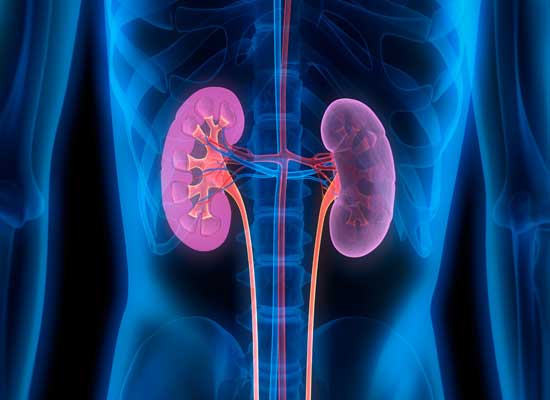Ayurvedic Treatment for Nephrotic Syndrome
Nephrotic syndrome (NS) is a condition that is often caused by any group of diseases that damage the kidneys’ filtering system, the glomeruli.
It is a kidney disorder that causes your body to excrete too much protein in the urine. It is more than 3.5gms/day.
Causes
Nephrotic syndrome is usually caused by damage to the clusters of small blood vessels in your kidneys that filter waste and excess water from your blood.
- Diabetes and hypertension (high blood pressure)
- Amyloidosis (stiffening and subsequent malfunction of the kidney due to fibrous protein deposit in the tissue)
- Congenital nephrosis
- Focal segmental glomerular sclerosis (FSGS) (creates scar tissue in the glomerulus, damaging its protein-repellant membrane)
- Glomerulonephritis (GN)
- Diffuse mesangial proliferative GN (affecting the mesangium)
- Membranous (damages the protein-repellant membrane)
- Postinfectious (occurs after an infection)
- IgA nephropathy (Berger’s disease) (deposit of specific immunoglobulin A causing an inflammatory reaction and leading to glomerulonephritis)
- Minimal change disease (Nil’s disease) –
- Membranous nephropathy. This kidney disorder is the result of thickening membranes within the glomeruli.
- Multiple Myeloma (Cancer)
- ·Syphilis & Vasculitis
Symptoms
- Foamy urine- which is due to proteinuria (proteins in urine more than 3.5g/day)-
- Hypoalbuminemia (low level of albumin in the blood)
- Hypercholesterolemia (high level of cholesterol in the blood)
- Swelling (edema), particularly around eyes and in ankles and feet, Generalized edema throughout the body known as anasarca which also causes weight gain.
- Fluid starts collecting in the body which results in
- the pleural cavity causing pleural effusion(water in the chest ) can cause Breathlessness.
- peritoneal cavity causing ascites.
- Hyperlipidemia,- Increase in Lipid levels.
- Lipiduria (lipids in urine).
- Hyponatremia also occurs with low fractional sodium excretion.
Investigations
- Urine test
- Urinalysis
- Urinary for 24-hour protein measurement.
- Urine protein electrophoresis
- Blood Test
- Serum albumin
- Blood urea nitrogen (BUN) Creatinine – blood test,
- Hepatitis B and C antibodies
- HIV test
- Rheumatoid factor
- Serum protein electrophoresis (SPEP)
- Syphilis serology
- ANA Profile
- Cryoglobulins
- Complement levels
- Renal ultrasonography
- Renal biopsy
Risk Factors
- Medical conditions that can damage your kidneys
Diabetes, lupus, amyloidosis, minimal change disease and other kidney diseases.
- Certain medications
Nonsteroidal anti-inflammatory drugs and drugs used to fight infections.
- Certain infections
HIV, hepatitis B, hepatitis C, and malaria.
Complications
- Nephrotic syndrome is associated with renal failure. Renal failure can either be gradual (CRF) or acute (ARF).
- Blood clots
- A hypercoagulable state in which the blood abnormally overcloys. Loss of blood proteins that help prevent clotting, increases your risk of developing a blood clot (thrombus) in veins. Renal vein thrombosis
- High blood cholesterol and elevated blood triglycerides – Atherosclerosis and related heart diseases.
- Poor nutrition. anemia and low levels of vitamin D and calcium.
- High blood pressure
- Infections, including pneumococcal pneumonia
Treatment
Goal of Treatment
- relieve symptoms
- prevent complications
- delay kidney damage
Treatment should be dictated by the type of renal pathology causing nephrotic syndrome.
- Keep blood pressure at or below 130/80 mm of Hg to delay kidney damage.
- Treat high cholesterol to reduce the risk of heart and blood vessel problems.
- Water pills (diuretics) may help with the swelling.
- You may need vitamin D supplements if nephrotic syndrome is long-term and not responding to treatment.
- Blood thinners may be needed to treat or prevent blood clots.
Allopathic treatment includes the administration of corticosteroids in a heavy dosage number of side effects in the body.
Ayurvedic Treatment for Nephrotic Syndrome
According to Ayurveda, there are three Doshas in the body – Vata, Pitta, Kapha. The disease is caused by the vitiation of these doshas. Nephrotic Syndrome is caused due to the vitiation of Pitta dosha. Treatment includes medication for normalizing Pitta dosha.
Herbs helping in Nephrotic Syndrome
Giloy
Haldi
Nagarmutha
Chirayata
Devdaru
Shunthi
Gokshura
Punarva
Chitrak
Kutki
Piplamool
ayurvedic treatment for kidney failure involves an analysis of your body Prakriti & Accordingly herbs are prescribed.
Diet
◆ Take the correct amount of protein
◆ Avoid saturated fats and trans fats
Fried foods, ice cream, fatty meats, poultry with skin, etc, all contributes to this kind of food.
◆Increase unsaturated fat
olive oil, canola oil, peanut butter, avocadoes, fish and nuts. Eat low-fat desserts.
◆ Limit the intake of sodium
2-3g one daily
high sodium can raise patients’ blood pressure and aggravate their swelling.
Avoid salty foods including canned foods, cheese, hamburgers, condiments, processed meat, etc.
◆ Consume more foods which are high in vitamin and soluble fiber
Fruits and vegetables
Fruits, such as apples, citrus fruits and strawberries, and vegetables, like carrots and celery, can help the body to rid itself of cholesterol and protect kidney function.
◆Monitor fluid intake, which includes all fluids and foods that are liquid at room temperature.
The best treatment for Iga nephropathy
For more info watch video

